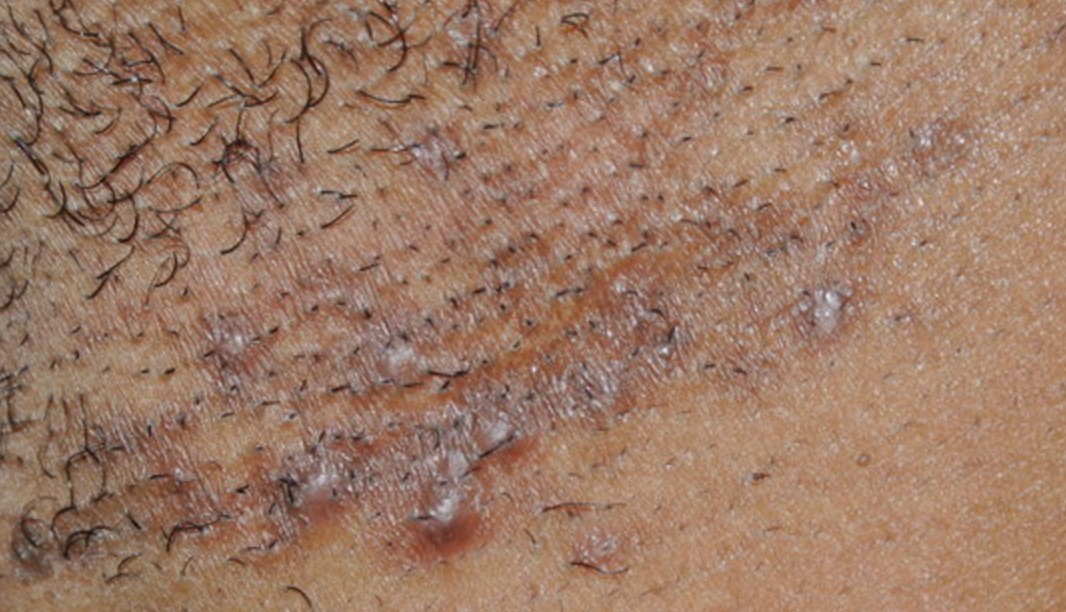You may get ingrown hair whenever you do any hair grooming exercise, such as shaving or waxing. It occurs in different parts of the body especially places commonly covered by clothing, for example, the pubic area.
The ingrown hair often leads to scarring, which leaves you with ugly-looking spots all over the area. Getting rid of this can be not easy, depending on the size and your measures to prevent them. This article with guide you on what to do and what not to do when dealing with ingrown hair scars.
What causes ingrown hair scars?
Irritation of the hair follicle may cause ingrown hair scars on the vagina. This usually happens when you are shaving or waxing. The hair may grow differently hence getting trapped under the skin leading to ingrown hair. The scar occurs when you further irritate the ingrown by trying to pop it out, drying it, or trying to shave again. These scars last a long time and will usually not fade alone.
Tips to avoid getting ingrown hair scars
It is possible to avoid the scars from ingrown hairs, although it is more difficult if you have curly hair. The following are some tips to help you:
- Use a warm compress after shaving. To get rid of dark spots from shaving and help the pores open up and reduce hair follicle irritation, dip a towel in warm water, squeeze out the excess, and place it on the shaven area. Leave it for five minutes, and this should help avoid ingrown hair scars in pits.
- Don’t try to pop it. Unless otherwise, ingrown hairs eventually find their way out of the pores. Don’t irritate it further by digging in since this may lead to an infection if not done correctly.
- Avoid shaving again. Don’t try to remove the hair by shaving the area again, as this may cause an infection of the hair follicle leading to a boil.
- Avoid wearing tight clothing. The area needs to breathe, so keep it away from the tight dressing. This prevents further irritation of the hair follicles.
- Keep the area clean. It is easy for the irritated follicle to get infected, so it is essential to keep it clean. Ensure that you also moisturize it so it doesn’t dry out, leading to scarring.
Does Bio Oil Work on Ingrown Hair scars?
Bio-oil is known for reducing the appearance of scars and other skin blemishes, so it is an excellent option for getting rid of ingrown hair keloid. It is rich in vitamins and extracts that gently exfoliate the skin and fade ingrown leg scars. Do not expect instant results since it works overtime by keeping the scarred areas moisturized and fading them. Use it regularly over a couple of months, and you should notice a significant difference.
How to deal with hyperpigmentation from ingrown hair treatment
Hyperpigmentation is an outcome of ingrown hair treatment as the skin gets a different color. Different therapies will prevent this problem as follows:
- Use salicylic acid and tretinoin. This combination is one of the best in slowly exfoliating the skin, creating an even skin tone from the hyperpigmentation. It works by evening out the skin on the affected areas and helps prevent further hyperpigmentation.
- Vitamin C. It is a known way of dealing with hyperpigmentation which works by controlling ingrown hairs and smoothing out the skin. It works overtime to also even your skin tone hence fading out the scars.
- Wear Sunscreen. If hyperpigmentation occurs in areas which the sun reflects, sunscreen can help in improving the skin tone. In addition, protection from UV rays helps prevent further darkening and enhances the skin tone over time.
- Lactic acid. It works like a chemical peel which is one of the best ways to get rid of hyperpigmentation. Apply on the affected area with some moisturizer, and it should start peeling over time. Allow it to peel entirely to reveal the new skin without the darker pigment.
How do I get rid of ingrown hair scars on my pubic area?
The pubic area is quite sensitive, and many ways to get rid of scars on other body parts may not work for this one. However, you can use Vitamin C on the area as long as you keep it away from the more sensitive areas of your vagina. Apply the Vitamin C serum daily for best results, and you should see the scars fading over time.
Retinoids are also a great way of helping reduce the appearance of scars on your pubic area. You can use Retin-A to help clear away the blemishes faster by reducing the dark spots on your vagina. However, remember to moisturize the site as you use retinoids since they cause the skin to dry up.
What cream is good for ingrown hairs?
The best way to deal with ingrown hairs is by helping them find a way out naturally. This can be done using exfoliating creams that allow the hair to grow out. They also work well to prevent ingrown hairs, which are great for use before shaving or waxing.
Creams containing an exfoliant are a great option to treat ingrown hair, such as glycolic acid, salicylic acid, lactic acid, and hydroxy acid. You can also use serums that soothe the skin, such as aloe vera, tea tree oil, or chamomile, which help reduce irritation that causes the ingrown hair.
Should you pop ingrown hair?
It would be best not to pop ingrown hairs since this may cause the hair follicle to get irritated, leading to an infection. It is also dangerous to use certain unsterile objects when popping the ingrown, which may lead to an infection and result in a boil. If there is a need to pop it, for example, if it gets too big and painful, contact a professional. You can also visit a doctor for creams that may help it grow out naturally.
Does hydrogen peroxide get rid of ingrown hairs?
Hydrogen peroxide helps in cleaning ingrown hair so that it doesn’t get infected. In addition, it can disinfect the tools to use in popping the ingrown if you must do it. It can also be used to help the ingrown hair to pop out.
Check this too: How to get rid of shaving rash on vag
When dealing with ingrown hair scars, it is essential that you do it carefully and you take care of the different things you use. Ensure that you keep the area clean and avoid popping out the ingrown to prevent infections. You can encourage the hair to come out naturally, so there is no need to force it out.

